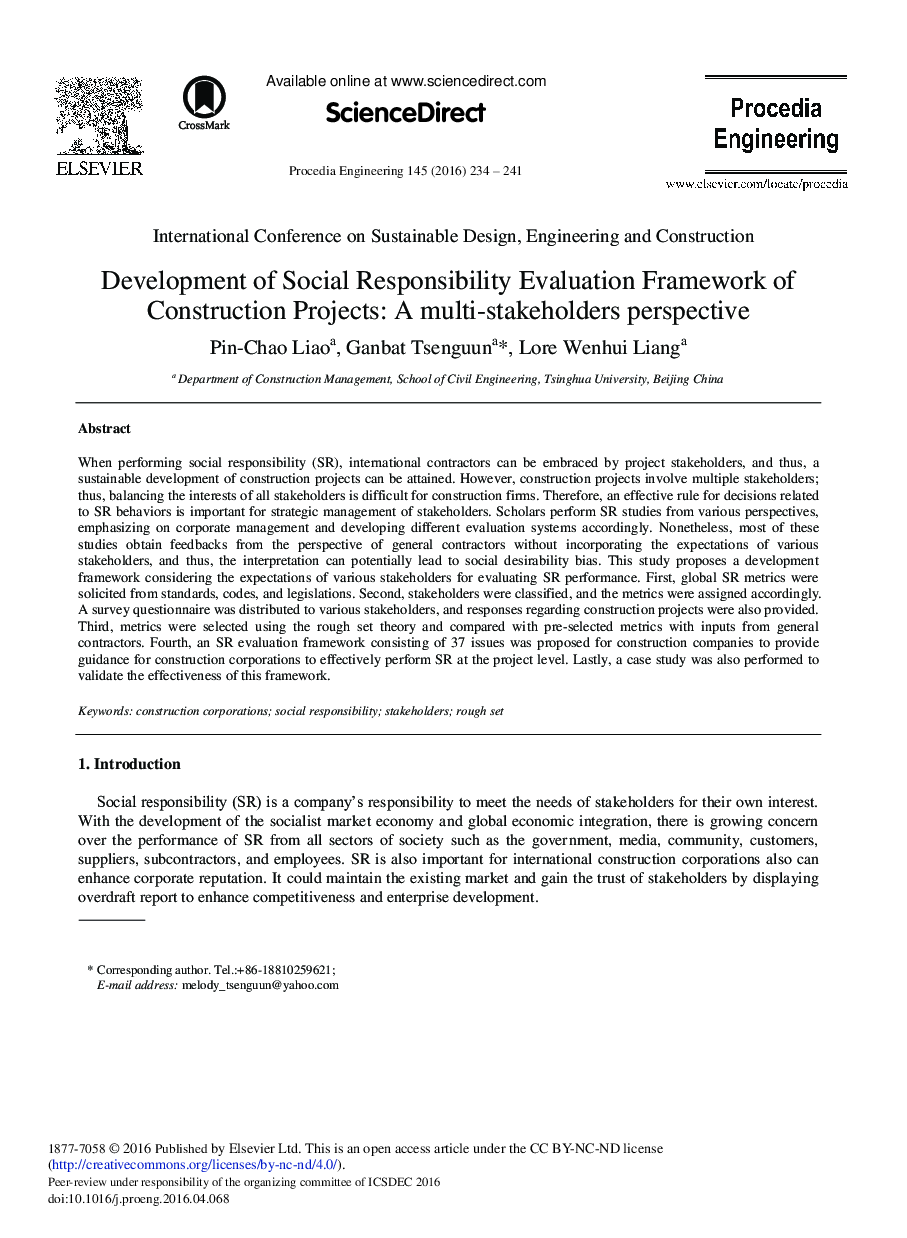| Article ID | Journal | Published Year | Pages | File Type |
|---|---|---|---|---|
| 853672 | Procedia Engineering | 2016 | 8 Pages |
When performing social responsibility (SR), international contractors can be embraced by project stakeholders, and thus, a sustainable development of construction projects can be attained. However, construction projects involve multiple stakeholders; thus, balancing the interests of all stakeholders is difficult for construction firms. Therefore, an effective rule for decisions related to SR behaviors is important for strategic management of stakeholders. Scholars perform SR studies from various perspectives, emphasizing on corporate management and developing different evaluation systems accordingly. Nonetheless, most of these studies obtain feedbacks from the perspective of general contractors without incorporating the expectations of various stakeholders, and thus, the interpretation can potentially lead to social desirability bias. This study proposes a development framework considering the expectations of various stakeholders for evaluating SR performance. First, global SR metrics were solicited from standards, codes, and legislations. Second, stakeholders were classified, and the metrics were assigned accordingly. A survey questionnaire was distributed to various stakeholders, and responses regarding construction projects were also provided. Third, metrics were selected using the rough set theory and compared with pre-selected metrics with inputs from general contractors. Fourth, an SR evaluation framework consisting of 37 issues was proposed for construction companies to provide guidance for construction corporations to effectively perform SR at the project level. Lastly, a case study was also performed to validate the effectiveness of this framework.
